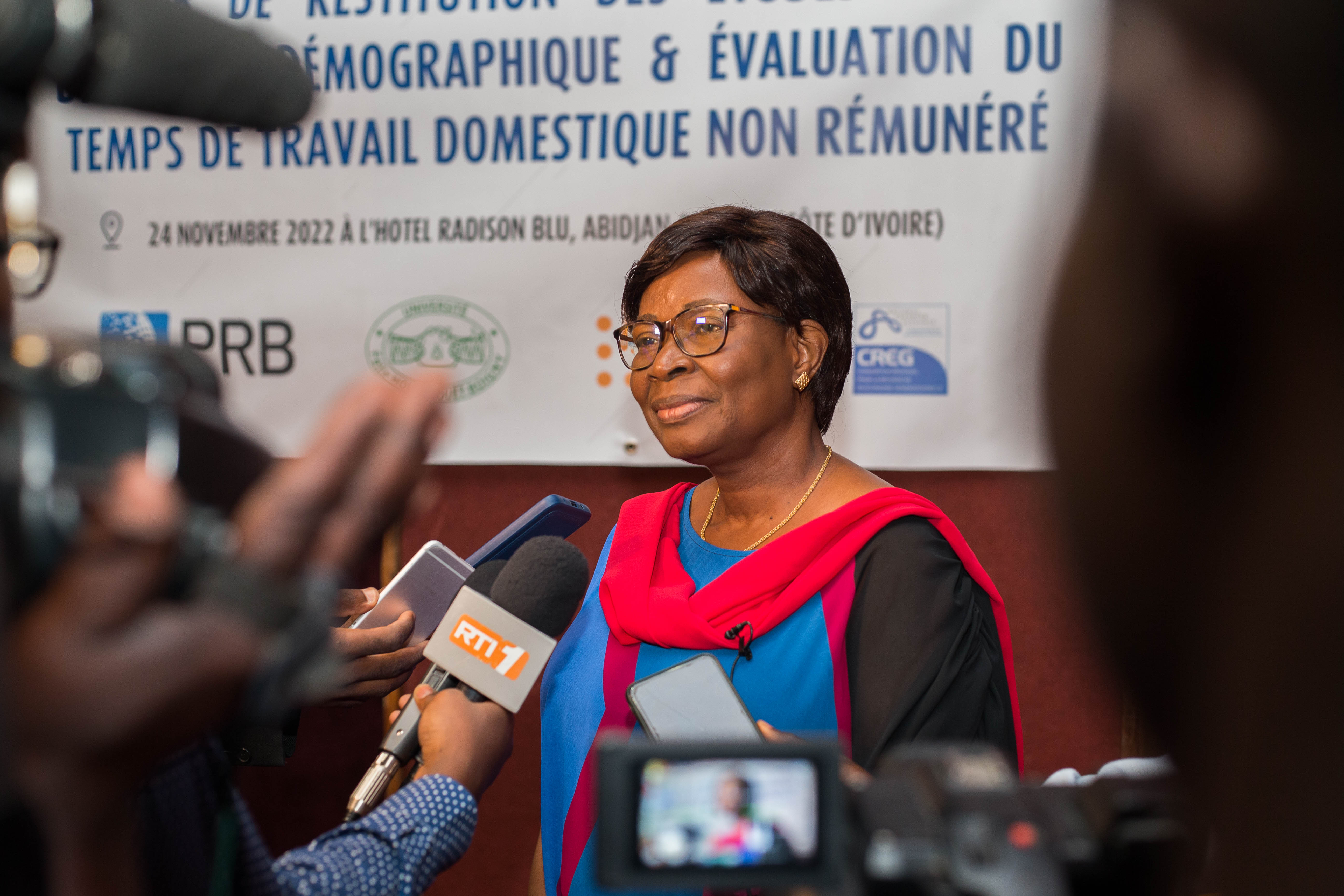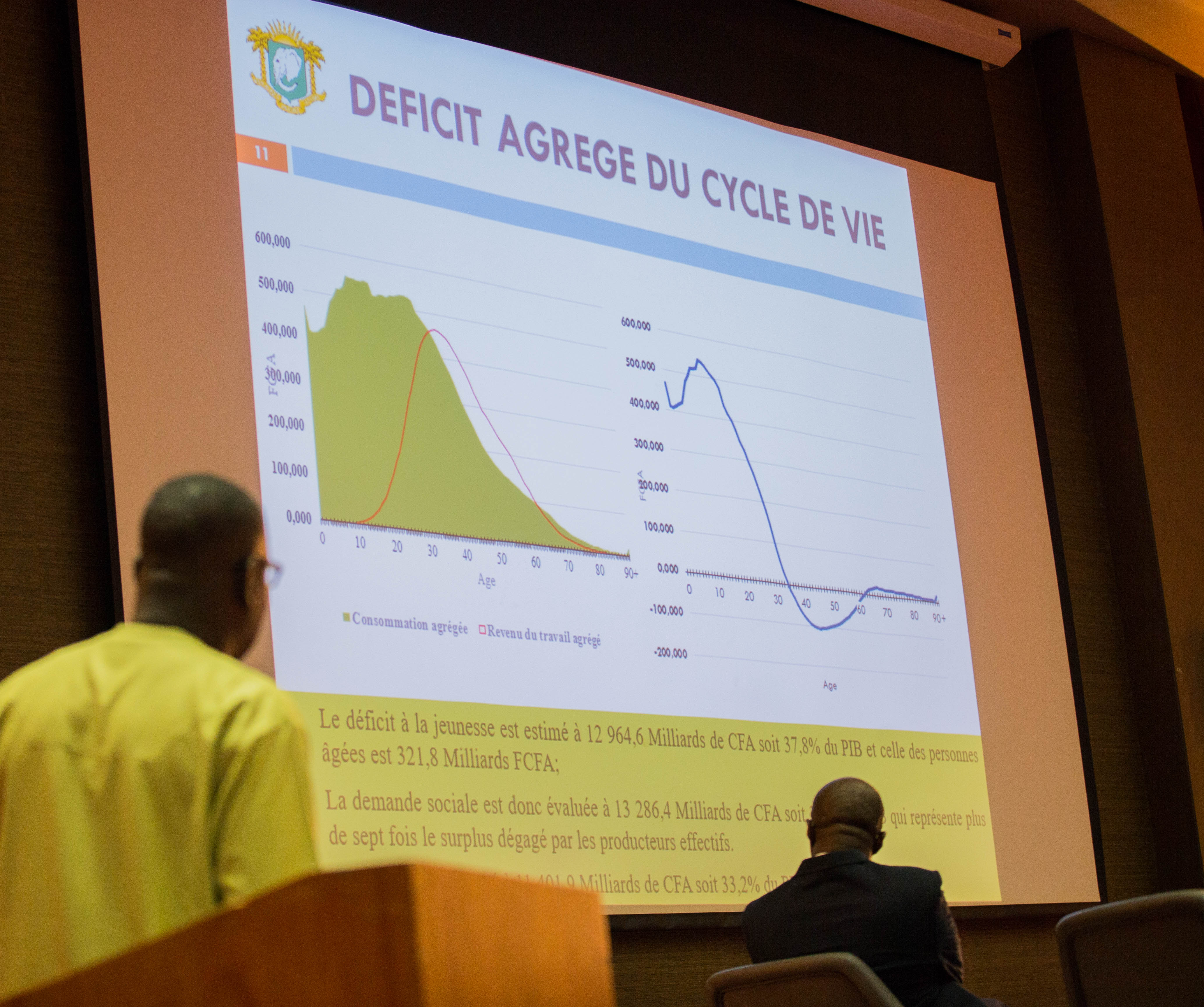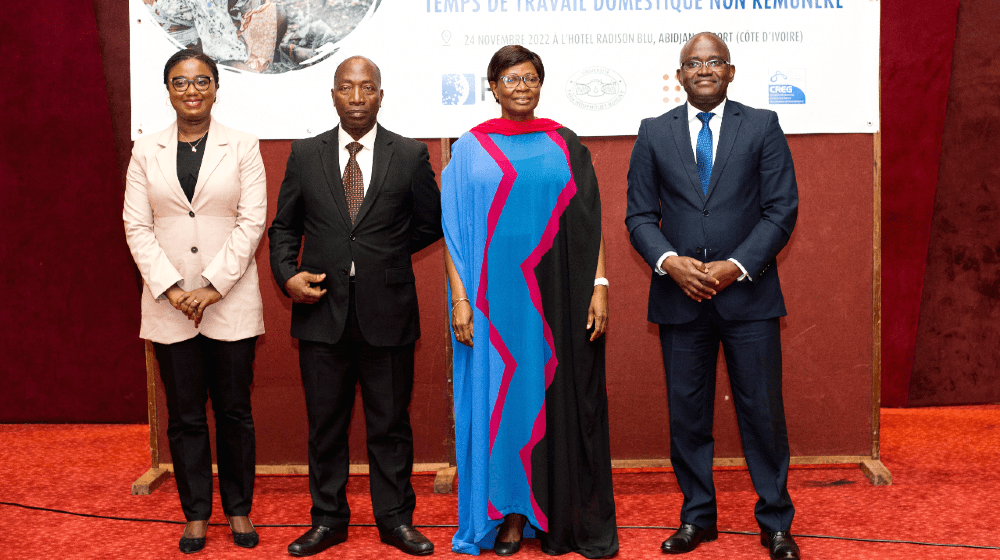Abidjan, 24 November 2022 - UNFPA and the National Demographic Data and Research Team today present the results of the study on enumerated domestic work and the research programme on the demographic dividend. This activity takes place in the presence of academics, Policy makers, civil society actors and development partners aim to strengthen the ownership of new tools to enable professionals to overcome the inadequacy and incompleteness of the National Accounting System and to strengthen advocacy and Capacity for adequate and inclusive policy development.
Since 1994, following the International Conference on Population and Development (ICPD) in Cairo, Egypt, population issues have been at the heart of development policies in most developing countries in Africa. This commitment was reflected in several actions including the joint ministerial conference of the African Union and the Economic Commission for Africa, the conference on the African population and the summit of heads of state of the African Union. As a result of these actions, the African Common Position on the development agenda has been forged in particular on those of 2030 and 2063 supported by pillars such as capturing the demographic dividend through adequate investment in youth.
This initiative also benefited from the project “Women’s Empowerment and the Demographic Dividend in the Sahel, or SWEDD, which contributed to the creation of a profile of Côte d’Ivoire’s demographic dividend with the support of the Regional Consortium for Generational Economic Research before being updated in 2021.

For Cécile Compaoré, UNFPA Representative in Côte d'Ivoire: “Updated data from Populations are an indispensable tool for development planning. In addition to the general census of the population that we have accompanied, we are committed to supporting research initiatives that facilitate the provision of reliable data useful for decision-making.”
The main source of the commitment to capture the demographic dividend comes from the fact that despite relatively strong economic growth in sub-Saharan Africa. In addition to this growth, gender inequalities have been found to generate low levels of human capital (especially among women). In a context of inclusive development, where all the barns of the population must contribute to the building, it remains important that the exploitation of the Demographic Dividend is optimal and that the policies and programs are gender sensitive.
Professor Ballo Zié, President of Felix Houphouët-Boigny University said: “Measuring population changes at the aggregate level, identifying and seizing the opportunity windows of the demographic dividend require a rigorous and proven methodology. The National Transfer Accounts (NTA) methodology provides the coherent accounting framework for economic flows from one age group or generation to another and enables demographic profiles to be produced to capture the demographic dividend.”

Some results of the various studies carried out indicate that:
- The structure of the observed population with a high proportion of the young population under 30 years of age in the total population, showing a peak of consumption between 10 and 30 years in 2019.
- At the aggregate level, the 30-49 age group contributes 59.5% to the generation of aggregate labour income and the maximum estimated aggregate income of CFAF 464.015 billion is obtained at the age of 36.
- The 25-34 age group captures 12% of the social demand reflecting a need for youth employment, a potential cause of illegal emigration.
- Women contribute about one-third of the national wealth of men, and the income profile has an unequal gender structure at the most productive ages over the life cycle. Over the period 2010-2050 the simulations show us a growth of the demographic dividend represented by the ratio of economic support, until reaching 51.4% in 2050 or 51 effective producers per 100 effective consumers.
- Average fertility makes it possible to obtain the faster growth rate of the demographic dividend
- The production of unpaid domestic care is largely dominated by women throughout the life cycle. This production starts early. From the age of 5, this contribution is already significant for the girl. Maximum production is reached between 20 and 26 years and remains high at all ages.
- The value of the aggregate output of men’s and women’s domestic working time is 853.57 billion CFA francs and accounts for about 2.6% of GDP with an estimated female share of 674.43 billion CFA francs or 2.0 billion1% of GDP and that of men is estimated at 179.13 billion CFA francs and represents about 0.6% of GDP.
Contacts:
Jordan Sera | Communication and Advocacy Programme Specialist | UNFPA Côte d'Ivoire | Phone: +225 07 87 75 54 03| E-mail: sera@unfpa.org
Constant N'da | Population and Development Programme Specialist | UNFPA Côte d'Ivoire | Phone: +225 07 08 08 80 54 | E-mail: nda@unfpa.org
Sylvère Konan| Research Professor |Felix Houphouët-Boigny University |E-mail konansyl@yahoo.fr



